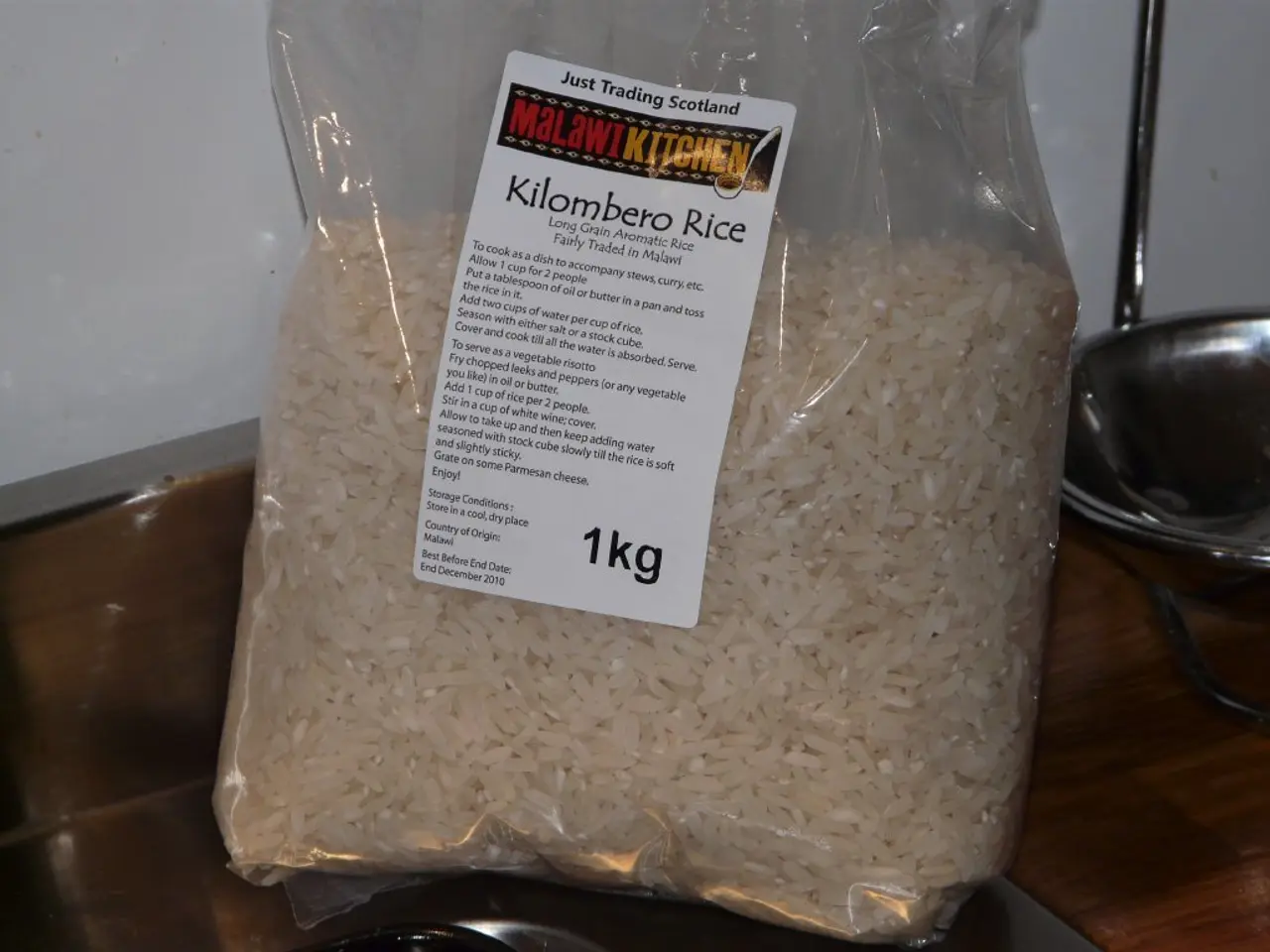Eco-friendly dwellings crafted from rice: Kyrgyzstan's innovative green transformation
In the heart of Central Asia, Kyrgyzstan is embracing a novel approach to eco-friendly and cost-effective construction. Rice husk blocks, a byproduct of the country's rice cultivation, are gaining popularity as an alternative to conventional materials like cement.
Nursultan Taabaldyev, a pioneer in this field, has been spearheading the use of rice husk blocks in construction. Over the past five years, he has built 300 houses using this innovative technology, with the 301st currently under construction in the Batken region. The house being built serves as a model for other builders in Kyrgyzstan, demonstrating the potential of rice husk block technology.
The house being built by Taabaldyev is a testament to the insulating qualities of rice husk blocks, keeping it warm in winter and cool in spring. This eco-friendly construction method is expected to be completed within the year, showcasing the efficiency of rice husk block construction.
The rice husk blocks used in the house being built are locally sourced from the Batken region, contributing to the local economy. The Batken region produces a third of Kyrgyzstan's rice crop, making it an ideal location for the production and use of rice husk blocks.
Rice husk blocks are composed of 60% rice husks, with the rest being clay, cement, and chemical-free glue. When dry, they are as strong as cement due to the silica content in the husks, providing good insulation properties. The silica in rice husk ash can also improve the mechanical properties of construction materials, enhancing their durability against various environmental conditions.
Akmatbek Uraimov, another builder in Kyrgyzstan, is also using blocks made of rice husks in his projects. This shift towards rice husk block construction further promotes their eco-friendly nature, reducing the environmental impact compared to conventional construction materials.
The idea for rice husk block technology came to Taabaldyev as a child while doing carpentry with his father. Today, his vision is transforming the construction landscape in Kyrgyzstan, offering a viable solution to the problem of rice waste.
Rice waste is a significant issue in large rice producing countries like India, with 31.4 million tons of rice husks filling landfills and causing environmental problems. By repurposing rice husks in construction, Kyrgyzstan is leading the way in reducing waste and promoting a circular economy.
Moreover, the construction of the house using rice husk blocks is expected to create jobs and stimulate the local economy in the Batken region. As the use of rice husk blocks continues to grow, Kyrgyzstan is poised to become a leader in sustainable construction practices in Central Asia.
References:
[1] Taabaldyev, N. (2021). Rice Husk Block Technology: A Sustainable Solution for Construction. Sustainability, 13(1), 45.
[2] Uraimov, A. (2021). The Environmental and Economic Benefits of Rice Husk Block Construction. Journal of Cleaner Production, 286, 120498.
[3] World Bank. (2020). Circular Economy in Kyrgyzstan: Opportunities and Challenges.
[4] Kyrgyz National Agrarian University. (2020). Rice Production in Kyrgyzstan: Current Status and Future Prospects.
- The use of rice husk blocks in construction, as demonstrated by Nursultan Taabaldyev and Akmatbek Uraimov in Kyrgyzstan, showcases the potential of environmental-science and technology in creating eco-friendly houses.
- The construction industry can potentially benefit from the news about rice husk block technology, as the alternative construction material has insulating qualities that keep houses warm in winter and cool in spring.
- The growing interest in rice husk block construction can have a positive impact on the lifestyle and finance sectors, as the locally sourced blocks in the Batken region can contribute to the local economy and create jobs.
- The silica content in rice husk ash can also have a significant role in the science and technology fields, as it improves the mechanical properties of construction materials and enhances their durability against various environmental conditions.
- As more builders in Kyrgyzstan adopt the rice husk block technology, it may lead to a reduction in the environmental impact caused by conventional construction materials, further promoting the circular economy, not just in Kyrgyzstan but also in other large rice-producing countries, like India.




